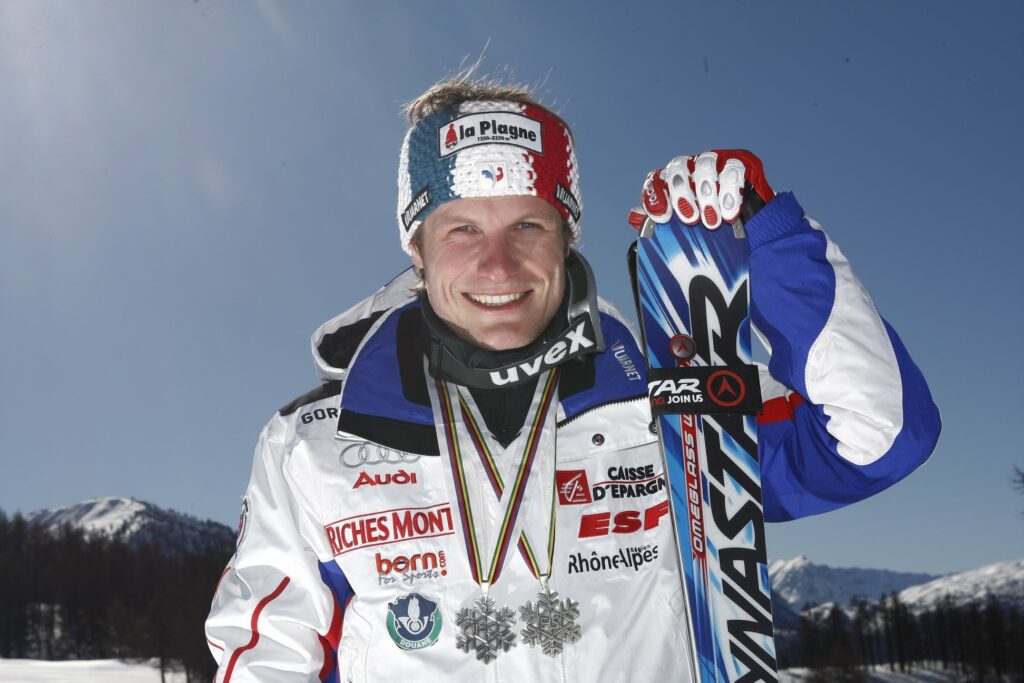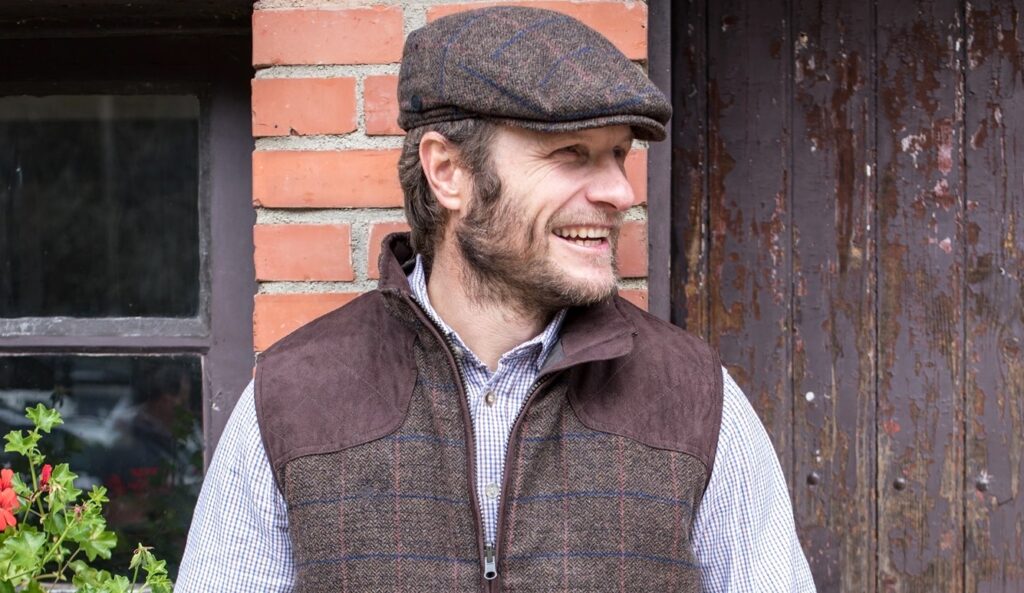EXCLUDED. The former French Alpine skier, who was runner-up in the slalom and combined world championships in Val d'Isère in 2009, spoke at length to Le Petit Montagnard on the occasion of the Sportel Awardswhere he was a guest.
Julien Lizeroux was all smiles when he appeared before us. It was an opportunity to talk about his post-career career and the French Alpine Ski Team, while taking stock of the state of our mountains and ski resorts.
How are you managing your post-career career?
Julien Lizeroux : I always live in the mountains. I was born in the mountains (Moutiers) and I've always lived between Albertville, La Plagne and Le Grand-Bornand. I've travelled a lot during my career, but this is where I wanted to make my life. My current life isn't very rich (smile).
I enjoy the mountains a lot in the summer, between outdoor activities and sport. During the winter season, I'm busy as an ambassador (Bollé, Sun Valley, Salomon, Team ESF). I do promotional work and photoshoots for my partners. I'm on skis a lot, that's what I like. I also do events. Some friends and I organise the Super Slalom at La Plagne.
Do you continue to follow and support the French Alpine ski teams?
Julien Lizeroux : I've always been a big fan of all sports in general. I've been heartbroken since the French rugby team was eliminated from the World Cup. Of course, I'm still a fervent supporter of the French ski teams. We're going through a difficult period. Our finances aren't up to scratch. It's a shame, because we're coming off a World Championship in France that went perfectly well.
There has always been an interest in the mountains in summer for the diversity of its outdoor activities. But the problem is that in people's minds, the mountains are winter and the sea is summer.
Julien Lizeroux
With the good results we've had over the last twenty years, it's hard for this generation to take. The other Federations opposite have so many more resources. It's hard for the younger generation. But it's a general problem in France. We're not a sporting nation, it's not a priority. The public authorities need to realise that sport is a real measure of social success, a great vehicle for communication and a solution for public health.
Tourism in the mountains grew by 2% this summer. How can we maintain this momentum and convince tourists that the mountains are also a summer destination?
Julien Lizeroux : There has always been an interest in the mountains in summer for the diversity of its outdoor activities. But the problem is that in people's minds, the mountains are winter and the sea is summer. They don't really think otherwise. And yet the mountains in summer are magical.
The scenery, the fresh air, the activities... In autumn, the colours are magnificent. If you like to be outdoors, the mountains are not far from paradise. That's why we need to emphasise and communicate the importance of a four-season mountain.
Is this what the public authorities want?
Julien Lizeroux : Make no mistake, most of the business is done in winter. In summer, it's difficult. I live in Grand Bornand with my wife, and the shopkeepers are open every day, but at the moment there's nobody there. They're working, but at a loss. They make up for it all with the winter season. We mustn't forget that we are the world's second most popular destination in terms of skiers per year, behind the United States, with 50 million ski days purchased.

How can we make the most of the winter season?
Julien Lizeroux : For several years now, we've been noticing that the snow is arriving later. The ski season doesn't just run from 15 December to 15 March. Last spring, we had exceptional conditions with real winter snow. And there was nobody on the slopes! We need to make people aware that the ski season doesn't end in March. At 2000 metres, there's snow until the end of April. It's an ideal time to ski, with fewer people on the slopes and longer days.
Some low-altitude resorts have already taken other paths. La Clusaz and Morzine, for example, have become benchmark resorts for mountain biking.
Julien Lizeroux
We often hear talk of global warming and the threat of snow in the coming years. What does this mean to you?
Julien Lizeroux : I've seen it evolve throughout my career. Some of the glaciers I visited in the 1990s have lost up to 100 metres of ice in some places. It's a fact of life that we can't ignore. But to say that there will be no more snow in ten years' time, I don't believe that at all. Low altitude resorts will be affected, but at 2000 metres there will always be snow.
Especially with the use of snow cannons, which are often criticised...
Julien Lizeroux : There are proponents and opponents of artificial snow. Artificial snow is nothing more and nothing less than water and cold.. When the snow melts, it becomes water again.
Contrary to popular belief, there are no additives. In Switzerland, the water is pumped directly from the dams and returned once the snow has melted.
What advice do you have for low-altitude resorts, which are the most threatened by climate change?
Julien Lizeroux : Some resorts have already taken other paths. This is the case of La Clusaz and Morzine, which have become benchmark resorts for mountain biking over the last ten or fifteen years. From June to the end of September, they are full to bursting. People hurtle down the slopes on their mountain bikes before going to the swimming pool, tennis court or whatever. The mountains are no less festive than the sea. The playground is limitless. You can see this in Tignes, which has developed its other activities enormously with magnificent facilities that regularly host national teams in several disciplines.

